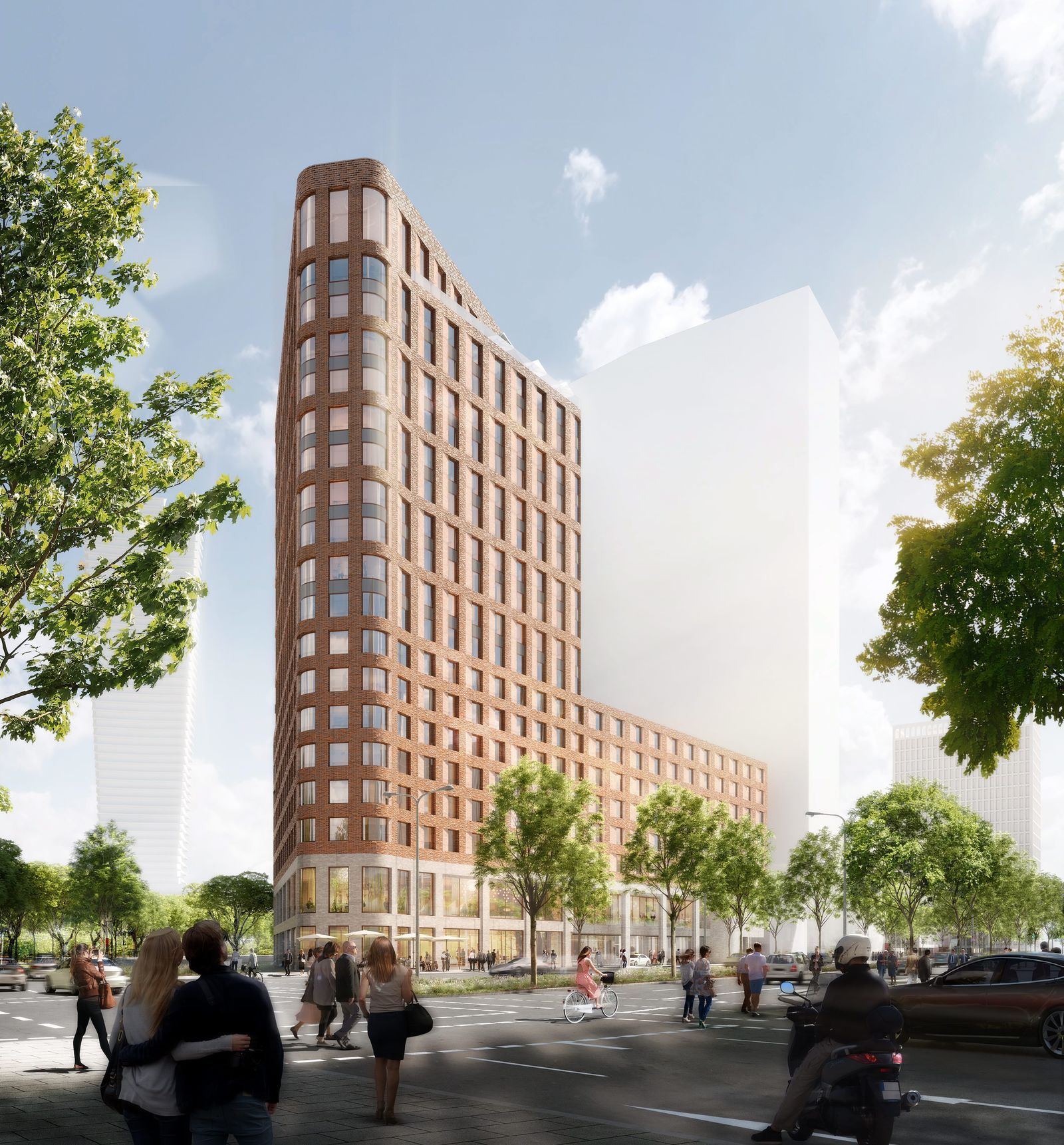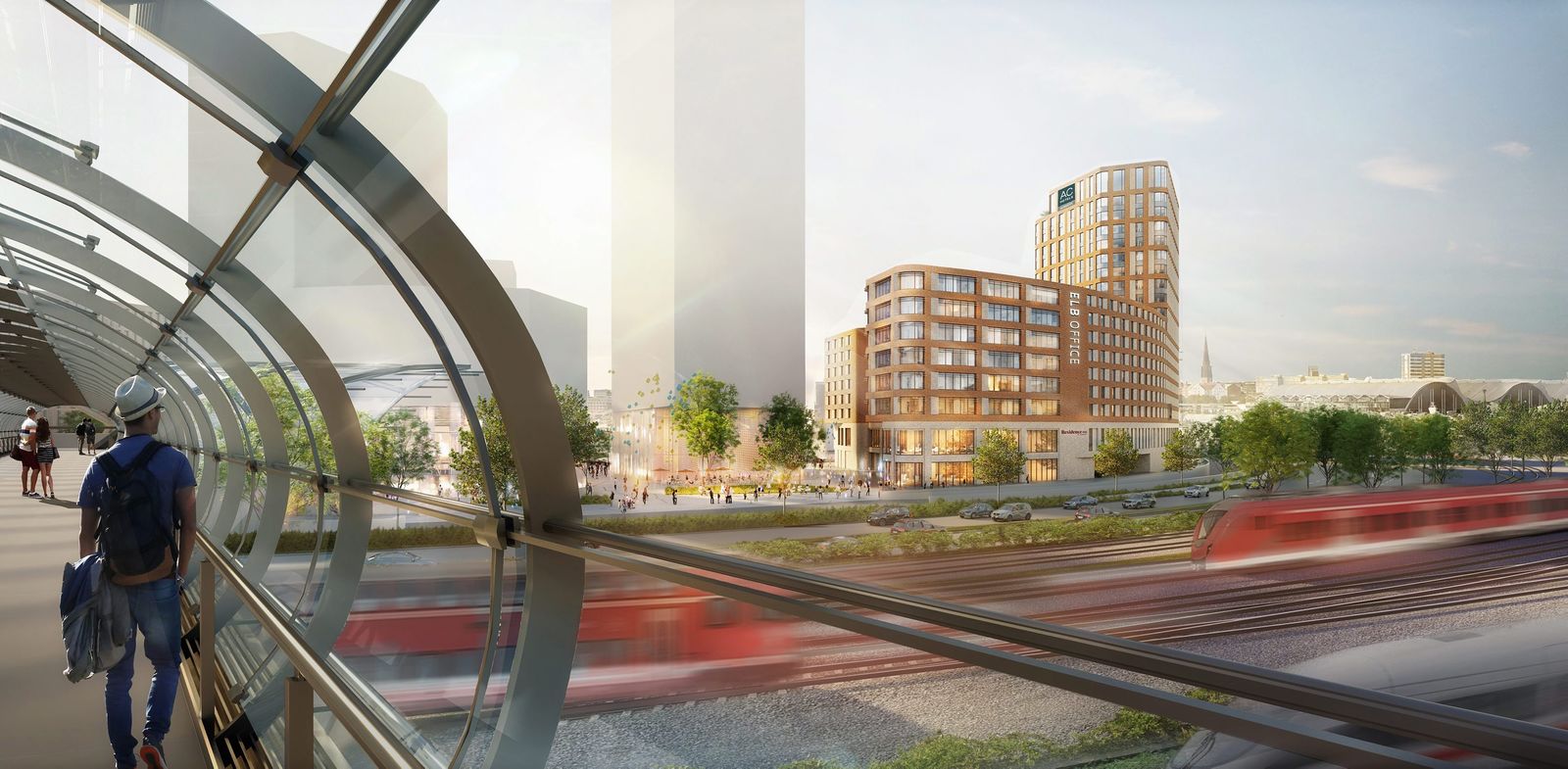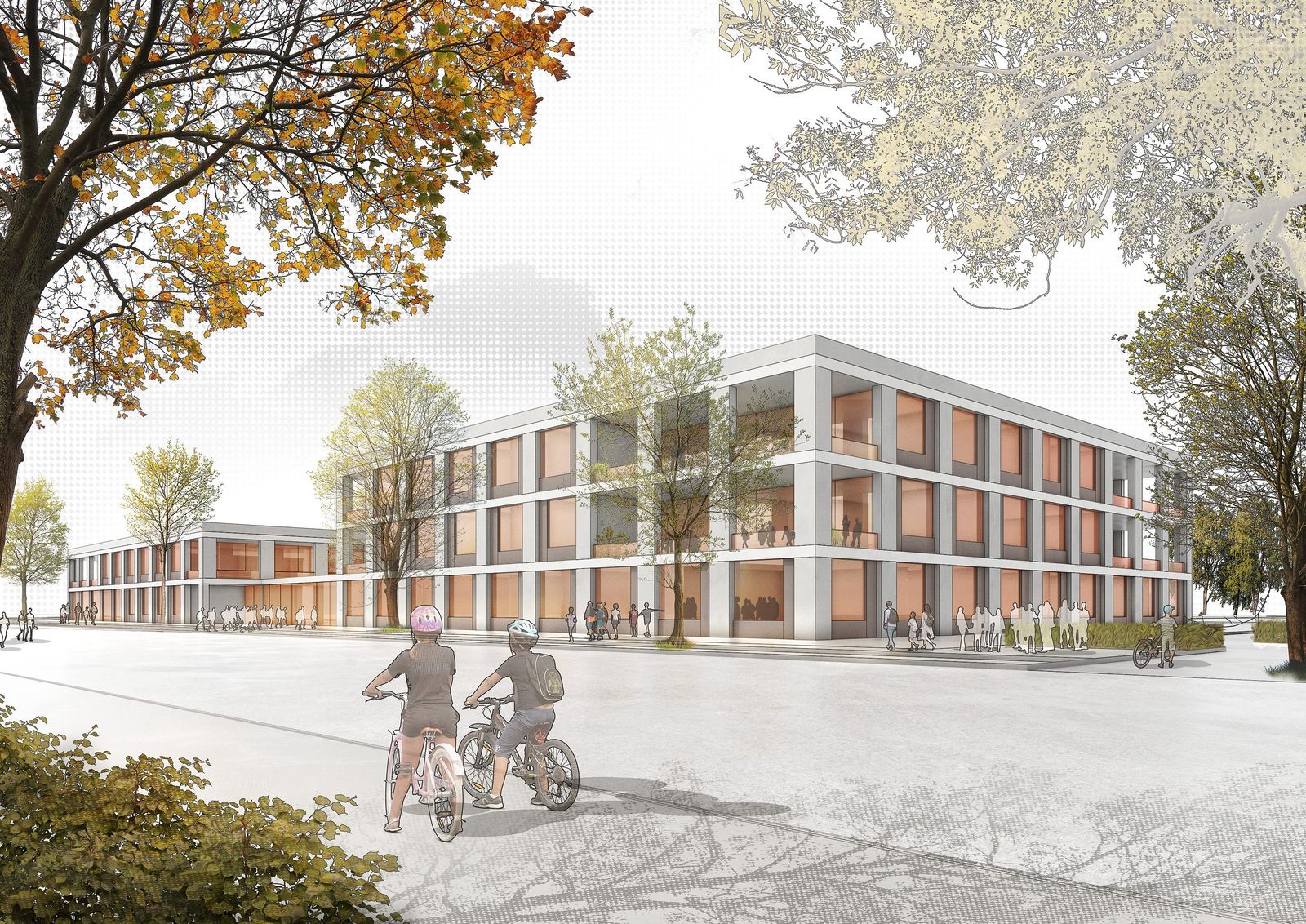Integrated Project Delivery (IPD)
Cultural Change in Construction through Integrated Project Delivery
The steady increase in the complexity of today’s construction projects, particularly in the area of large-scale projects, requires that we rethink the way in which all project participants work. With a view to the international building industry, the Integrated Project Delivery (IPD) approach can be seen as an opportunity for achieving this cultural change.

3 Schools Bremerhaven © Loomn / Allianz

3 Schools Bremerhaven © Loomn / Allianz

3 Schools Bremerhaven © Loomn / Allianz
In IPD procedures, key participants like clients, designers, and builders operate as a “business for a definite time period” to develop the best solution for the project – well in advance, across company boundaries, and as a team. The goal of this procedure is to optimize the processes of complex projects and frame construction costs and construction periods efficiently and predictably for all participants.
Integrated Project Delivery draws on various key principles. All decisions regarding costs, scheduling, and quality are made unanimously and as a group based on “what’s best for the project.” Because of the shared responsibility for both opportunities and risks within a multiparty contract, everyone’s interests are focused on one goal, where success can only be achieved collectively. Collaborative methods like Building Information Modelling (BIM) and lean management principles support a high degree of transparency and a solid, mutual understanding of the project.

Congress Hotel for HafenCity's Elbbrücken Quarter, Hamburg © moka-studio

IPD models are based on the belief that complex building projects can be implemented most efficiently by a strong team. Creating a good culture of collaboration requires that team members work together as intensively as possible, both spatially and timewise (co-location). © Heinrich Holtgreve
A willingness to cooperate and engage in continuous learning results in a special kind of collaboration characterized by mutual appreciation. We find that collaboration on an equal footing, a well-functioning error culture, and solution-oriented coordination processes are particularly valuable, as is the practice of all project participants temporarily working in one space (co-location). The benefits of this type of project delivery are obvious, especially when it comes to complex, large-scale projects.
With our participation in Germany’s first IPD project (Kongresshotel Hafencity) and the first German public IPD project (Allianz 3 Schulen Bremerhaven), we’ve begun a continuous process of increasing our level of expertise in Integrated Project Delivery that we will continue to expand with future construction projects.

